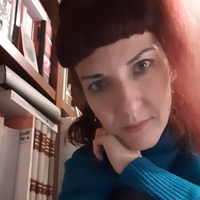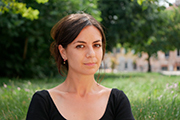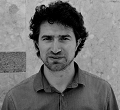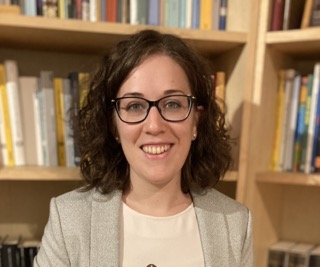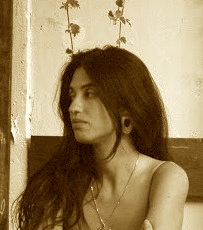Studying at the University of Verona
Here you can find information on the organisational aspects of the Programme, lecture timetables, learning activities and useful contact details for your time at the University, from enrolment to graduation.
Academic calendar
The academic calendar shows the deadlines and scheduled events that are relevant to students, teaching and technical-administrative staff of the University. Public holidays and University closures are also indicated. The academic year normally begins on 1 October each year and ends on 30 September of the following year.
Course calendar
The Academic Calendar sets out the degree programme lecture and exam timetables, as well as the relevant university closure dates..
| Period | From | To |
|---|---|---|
| Sem 1A | Sep 23, 2019 | Oct 31, 2019 |
| Sem 1B | Nov 11, 2019 | Jan 11, 2020 |
| Sem 2A | Feb 17, 2020 | Mar 28, 2020 |
| Sem 2B | Apr 6, 2020 | May 30, 2020 |
| Session | From | To |
|---|---|---|
| Sessione d'esame invernale | Jan 13, 2020 | Feb 15, 2020 |
| Sessione d'esame estiva (gli esami sono sospesi durante la sessione di laurea) | Jun 3, 2020 | Jul 25, 2020 |
| Sessione d'esame autunnale | Aug 24, 2020 | Sep 19, 2020 |
| Session | From | To |
|---|---|---|
| Sessione di laurea estiva | Jul 6, 2020 | Jul 11, 2020 |
| Sessione di laurea autunnale 19-20 | Nov 2, 2020 | Nov 7, 2020 |
| Period | From | To |
|---|---|---|
| Festa di Ognissanti | Nov 1, 2019 | Nov 1, 2019 |
| Sospensione delle lezioni | Nov 2, 2019 | Nov 2, 2019 |
| Festa dell'Immacolata | Dec 8, 2019 | Dec 8, 2019 |
| Vacanze di Natale | Dec 23, 2019 | Jan 6, 2020 |
| Vacanze di Pasqua | Apr 10, 2020 | Apr 14, 2020 |
| Festa della Liberazione | Apr 25, 2020 | Apr 25, 2020 |
| Festa del Lavoro | May 1, 2020 | May 1, 2020 |
| Sospensione delle lezioni | May 2, 2020 | May 2, 2020 |
| Festa del Santo Patrono | May 21, 2020 | May 21, 2020 |
| Festa della Repubblica | Jun 2, 2020 | Jun 2, 2020 |
| Vacanze estive | Aug 10, 2020 | Aug 15, 2020 |
Exam calendar
Exam dates and rounds are managed by the relevant Culture and Civilisation Teaching and Student Services Unit.
To view all the exam sessions available, please use the Exam dashboard on ESSE3.
If you forgot your login details or have problems logging in, please contact the relevant IT HelpDesk, or check the login details recovery web page.
Should you have any doubts or questions, please check the Enrollment FAQs
Academic staff
 lucilla.calogero@univr.it
lucilla.calogero@univr.it
 luca.digiovanni@univr.it
luca.digiovanni@univr.it
 lor.reg@alice.it
lor.reg@alice.it
 elena.zilotti@univr.it
elena.zilotti@univr.it
 silvia.zollo@univr.it
silvia.zollo@univr.it
Study Plan
The Study Plan includes all modules, teaching and learning activities that each student will need to undertake during their time at the University.
Please select your Study Plan based on your enrollment year.
1° Year
| Modules | Credits | TAF | SSD |
|---|
1 module between the following1 module among the following2° Year activated in the A.Y. 2020/2021
| Modules | Credits | TAF | SSD |
|---|
1 module among the following1 module among the following| Modules | Credits | TAF | SSD |
|---|
1 module between the following1 module among the following| Modules | Credits | TAF | SSD |
|---|
1 module among the following1 module among the following| Modules | Credits | TAF | SSD |
|---|
Legend | Type of training activity (TTA)
TAF (Type of Educational Activity) All courses and activities are classified into different types of educational activities, indicated by a letter.
Type D and Type F activities
| years | Modules | TAF | Teacher |
|---|---|---|---|
| 1° 2° | Lectures "Musiche/Culture/Civiltà" | F |
Vincenzo Borghetti
(Coordinator)
|
| 1° 2° | Worshop for cultral events | F | Not yet assigned |
| years | Modules | TAF | Teacher |
|---|---|---|---|
| 1° 2° | Lectures "Musiche/Culture/Civiltà" | F |
Vincenzo Borghetti
(Coordinator)
|
| 1° 2° | Worshop for cultral events | F | Not yet assigned |
| years | Modules | TAF | Teacher |
|---|---|---|---|
| 1° 2° | Marchants of Culture. Editorial distribution and promotion | F |
Federica Formiga
(Coordinator)
|
| 1° 2° | Workshop on digital publishing | F |
Andrea Bongiorni
(Coordinator)
|
| 1° 2° | Worshop for cultral events | F | Not yet assigned |
| 1° 2° | Workshop on transmedia storytelling | F |
Elena Zilotti
(Coordinator)
|
| years | Modules | TAF | Teacher |
|---|---|---|---|
| 1° 2° | Workshop on digital publishing | F |
Andrea Bongiorni
(Coordinator)
|
| 1° 2° | Worshop for cultral events | F | Not yet assigned |
| 1° 2° | Workshop on transmedia storytelling | F |
Elena Zilotti
(Coordinator)
|
| years | Modules | TAF | Teacher |
|---|---|---|---|
| 1° 2° | "Common world. 2022 Arendt Seminars | F |
Olivia Guaraldo
(Coordinator)
|
Music and media (m) (2019/2020)
Teaching code
4S003573
Teacher
Coordinator
Credits
6
Also offered in courses:
- History of Music (m) of the course Master’s degree in Tradition and Interpretation of Literary Texts
- Music and media (m) of the course Master's degree in Arts (interuniversity)
Language
Italian
Scientific Disciplinary Sector (SSD)
L-ART/07 - MUSICOLOGY AND HISTORY OF MUSIC
Period
Sem 1A, Sem 1B
Learning outcomes
The course aims to introduce students to the issues and methods concerning the study of the relationship between music and media, focusing especially on the technologies used to fix, transmit, read and listen to music in the western world from the Middle Ages to the present. On successful completion of the module, students will have acquired extensive knowledge of the material and technological features of music media; they will have also developed the skills necessary for analyzing the cultural, social and ideological aspects of music media.
Program
Writing, reading, listening to music from the Middle Ages to the digital era. The course offers a history of music through its media, focusing especially on their material and technological features, their uses, and their social, cultural and ideological aspects, starting from the oldest documented forms of mediatization (manuscripts, prints) and ending with the most recent ones (digital audiovisual media).
The course includes audio and video examples.
Bibliography
All books are available in the University library. The symbol * marks books that will be available in the E-learning platform by the beginning of the lectures.
- lecture notes;
- NICHOLAS COOK, “Music: A Very Short Introduction”, Oxford, Oxford University Press, 1998, pp. 1-51;
- *VINCENZO BORGHETTI, “Il manoscritto di musica tra Quattro e Cinquecento”, in “Il libro di musica”, a cura di Carlo Fiore, L’Epos, Palermo 2004, pp. 89-114;
- *VINCENZO BRGHETTI, "Lo sguardo che ascolta", Companion on Petrus Alamire's luxury music books;
- *STANLEY BOORMAN, “I primi stampatori musicali”, in “Il libro di musica”, a cura di Carlo Fiore, L’Epos, Palermo 2004, pp. 115-136;
- *TIM CARTER, “L’editoria musicale tra Cinque e Seicento”, in “Il libro di musica”, a cura di Carlo Fiore, L’Epos, Palermo 2004, pp. 137-162;
- *EMANUELE SENICI, “Il video d’opera “dal vivo”: testualizzazione e liveness nell’era digitale”, «Il Saggiatore musicale», 2009/2, pp. 272-312;
- *EMANUELE SENICI, “L’opera e la nascita della televisione italiana”, «Comunicazioni sociali», 2011/1, pp. 26-35;
- *VINCENZO BORGHETTI, "Filmare l'opera senza filmare il canto: la 'Carmen' di Francesco Rosi", in "Francesco Rosi: il cinema e oltre", a cura di Alberto Scandola e Nicola Pasqualicchio, Milano-Udine, Mimesis, 2019, pp. 207-224;
- *JACQUES HAINS, “Dal rullo di cera al CD”, in “Enciclopedia della musica”, diretta da Jean-Jacques Nattiez, vol. 1, “Il Novecento”, Einaudi, Torino 2001, pp. 783-819;
- GIANNI SIBILLA, “Musica e media digitali. Tecnologie. Linguaggi e forme sociali dei suoni dal walkman all’iPod”, Bompiani, Milano 2008, pp. 9-74 e 88-101.
if needed, further bibliography will be added during the term
| Author | Title | Publishing house | Year | ISBN | Notes |
|---|---|---|---|---|---|
| Jacques Hains | “Dal rullo di cera al CD”, in “Enciclopedia della musica”, diretta da Jean-Jacques Nattiez, vol. 1, “Il Novecento” | Einaudi, Torino | 2001 | pp. 783-819 | |
| Vincenzo Borghetti | "Filmare l'opera senza filmare il canto: la 'Carmen' di Francesco Rosi", in "Francesco Rosi: il cinema e oltre", a cura di Alberto Scandola e Nicola Pasqualicchio | Mimesis | 2019 | pp. 207-224 | |
| Vincenzo Borghetti | “Il manoscritto di musica tra Quattro e Cinquecento”, in “Il libro di musica”, a cura di Carlo Fiore | L'Epos, Palermo | 2004 | pp. 89-114 | |
| * EMANUELE SENICI | “Il video d’opera “dal vivo”: testualizzazione e liveness nell’era digitale”, «Il Saggiatore musicale» | 2009 | pp. 272-312 | ||
| Stanley Boorman | “I primi stampatori musicali”, in “Il libro di musica”, a cura di Carlo Fiore | L'Epos, Palermo | 2004 | pp. 115-136 | |
| Tim Carter | “L’editoria musicale tra Cinque e Seicento”, in “Il libro di musica”, a cura di Carlo Fiore | L'Epos, Palermo | 2004 | 137-162 | |
| EMANUELE SENICI | “L’opera e la nascita della televisione italiana”, «Comunicazioni sociali», | 2011 | pp. 26-35 | ||
| Vincenzo Borghetti | "Lo sguardo che ascolta" - Dispensa sui manoscritti di musica di lusso di Petrus Alamire; | 2018 | |||
| Gianni SIbilla | "Musica e media digitali. Tecnologie. Linguaggi e forme sociali dei suoni dal walkman all’iPod" | Bompiani | 2008 | pp. 9-74 e 88-101 | |
| Nicholas Cook | "Musica: una breve introduzione" | EDT, Torino | 2005 | pp. 1-51 |
Examination Methods
Written test: three questions, to be answered in 1h and 30m. The first question will center on music as a medium of communication between human beings and of construction of social groups (first part of the course); the other two will focus on the kinds of media discussed during the lectures and in the readings (second part of the course). Evaluation criteria: proper use of specific vocabulary, knowlegde of the social, cultural and ideological aspects of the various media, ability to analyze the media presented as case studies.
Due to the Coronavirus pandemic, and in accordance with the University of Verona guidelines, during the 2020 summer session the assessment modality will be modified as follows: written essay to be completed at home. Specific instructions are available on Moodle.
How to register for the exam
Students intending to sit the exam for this course must:
- enter their name online for “appello scritto NON VERBALIZZANTE”
- after the written exam, wait for the publication of grades in the section “avvisi” of the professor’s webpage (http://www.dcuci.univr.it/?ent=persona&id=4950&lang=it#tab-avvisi).
- Students who want their grade to be officially registered must enter their name online for the “appello VERBALIZZANTE” (or “di VERBALIZZAZIONE”). This “appello” does NOT require a student’s physical presence: the professor will register the grade online in his own time.
Career prospects
Module/Programme news
News for students
There you will find information, resources and services useful during your time at the University (Student’s exam record, your study plan on ESSE3, Distance Learning courses, university email account, office forms, administrative procedures, etc.). You can log into MyUnivr with your GIA login details: only in this way will you be able to receive notification of all the notices from your teachers and your secretariat via email and soon also via the Univr app.
Graduation
List of theses and work experience proposals
| theses proposals | Research area |
|---|---|
| Laureandi Editoria e Giornalismo: vademecum | Various topics |
| TESI SU COMUNICAZIONE DELL’AGROALIMENTARE | Various topics |
| Stage | Research area |
|---|---|
| Proposte stages - Centro di ricerca Skenè | Various topics |
| TIROCINIO IN GIORNALISMO E SOCIAL MEDIA | Various topics |

 +39 045802 8409
+39 045802 8409


